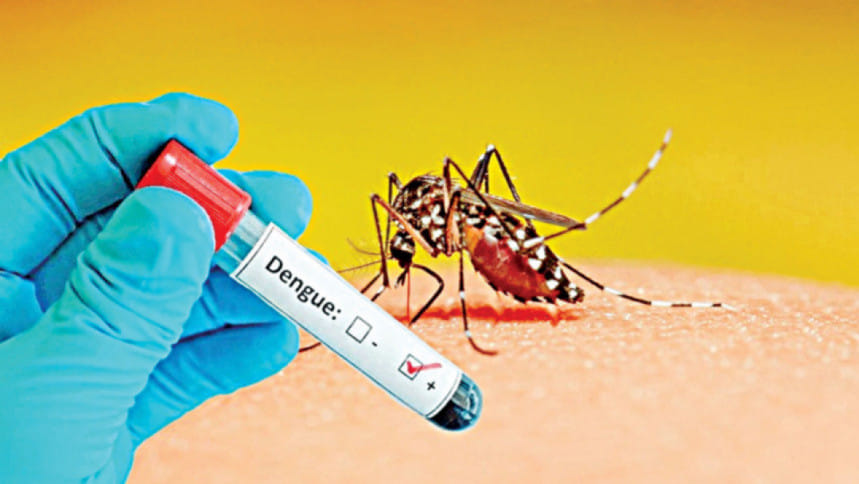
With election day only a week away, the number of threats to the voting processes are escalating, putting election officials, law enforcement and the federal government on a heightened state of alert. And Colorado has not been immune. The Colorado Information Analysis Center, part of the state Department of Public Safety, recently sent out a “situational analysis bulletin” to election officials and law enforcement, highlighting dozens of election-related threats in Colorado and nationwide.
The bulletin said “it had no information or intelligence to indicate a specific, credible threat to the 2024 Colorado election cycle as it pertains to targeted violence or terrorism,” although it cautioned officials to remain vigilant. The bulletin, which is labeled for official use only, was published by Property of the People, a nonprofit that works on issues of government transparency. The Oct.
10 bulletin “specifically focused on targeted violence and terrorism, swatting, insider threats, and county clerk and election personnel safety and security.” The center also reviewed social media, news reporting and other open sources to identify explicit public safety threats associated with Colorado’s elections this year, the bulletin said. At the national level, the assassination threats against former President Donald Trump “will likely increase hostile ideologically motivated rhetoric,” as well as "conspiracies" and "disinformation," the bulletin said.
Trump has been the subject of two failed assassination attempts. The bulletin also cited the emergence of Vice President Kamala Harris as the Democratic nominee, claiming it would add to the political divide nationally. At the local level, topics such as homelessness, immigration and the economy “may inspire individuals to participate or initiate protests, violence or property damage,” the bulletin said.
The report pointed to targeted violence and terrorism “associated with ideologically motivated individuals” that will continue to be a threat throughout the election cycle. “There is continued dialogue on extremist discussion groups and forums that the results of the 2020 elections were inaccurate, including calls to infiltrate the election system,” the bulletin said. Over the past week, threats related to this year's elections have been reported in multiple states.
Incendiary devices were placed in ballot drop boxes in Portland, Oregon and Vancouver, Washington overnight, the Associated Press reported on Monday. Last Thursday, a Phoenix-area man was arrested for setting a U.S.
Postal Service mail box on fire that contained ballots. The man insisted it was not politically motivated. The bulletin from the Colorado Information Analysis Center highlighted some three dozen incidents of targeted violence and terrorism; swatting — that’s when someone calls emergency services to report a non-existent emergency or violence; "insider" threats, and threats against county clerks and other election personnel.
Insider threats are a growing concern, according to both a state official and the head of Colorado's county clerks association. Kevin Klein, who directs the Colorado Division of Homeland Security and Emergencies Management, told Wired that “the entire threat picture is elevated for this election. I think it’s fair to say that insider threats are a greater concern than in previous elections.
” According to the bulletin, insider threats are those committed by someone from inside the election system. The bulletin identified several areas where election officials should be cautious: altering or destroying ballots, mail-in envelopes, or allowing access to individuals who don’t have prior approval. accessing election systems, equipment or facilities, similar to the actions of former Mesa County Clerk and Recorder Tina Peters, who was sentenced earlier this month to nine years in prison for copying election software in 2021 and then providing it to someone not authorized to have it.
The same happened in Elbert County in 2021, although the copy was turned over to the Secretary of State, allowing the clerk, Dallas Schroeder, to avoid felony charges. The bulletin also identified turning off security cameras, which was part of what happened in Mesa County. Then there's who gets approved to be poll watchers or election judges.
The Gilpin County Clerk and Recorder announced on Friday that a poll watcher had been dismissed for violating state statute and county policy regarding election watchers. While the statement from Sahari McCormick did not identify the watcher nor the incident, social media posts claimed the poll watcher tried to interfere with a judge who was conducting signature verification. Meanwhile, a post on X (formerly Twitter) on Oct.
24 claimed that “a Republican poll watcher got tossed out of Gilpin Counties ballot processing center. She was just asking to see the signatures and they called the police on her. #Colorado does not have a transparent voting process.
” McCormick confirmed the incident with Colorado Public Radio's Ryan Warner, but the county official maintained it had nothing to do with party affiliation. The watcher demanded to see ballot envelopes, and while she had a clear view of the signature verification station, “the worker is not required to hold up each and every ballot envelope so the watcher can compare signatures.” That was not the worker’s job, McCormick said, and the watcher insisted she would verify signatures and refused to leave after several warnings.
Eventually, she was escorted out by the sheriff. “I welcome watchers, but refuse to tolerate them disrupting the process,” McCormick said. Matt Crane, who heads the Colorado County Clerks Association, said they've been preparing for this for the last four years, and in the last two years that's included new clerks elected in 2022.
"The focus is on insider threats," Crane said. There's been a lot of training, he added, including on physical security and working with the federal government's Cybersecurity and Infrastructure Security Agency. "All of this has been top of mind for us.
Unfortunately, those trainings have proven to be necessary and relevant. And one of the biggest things we push is information sharing. If it happens in one county it will probably happen somewhere else," he said.
The other worry deals with targeted violence and terrorism and threats against election officials, and the bulletin cited some three dozen examples, with a half-dozen coming from Colorado: “A threat actor whose aim is to cause chaos or generally discredit the U.S. political system would reap a large award for very little effort,” the bulletin said.
It also pointed to hostile rhetoric by or against Colorado lawmakers, such as an July 2024 post on Facebook that targeted state Rep. Ron Weinberg, R-Loveland, and U.S.
Rep. Lauren Boebert, R-Windsor, stating “they should be put in the crosshairs.” A second example the bulletin cited came from a post on X from state Rep.
Steven Woodrow, D-Denver, shortly after the first assassination attempt, in which he said “the last thing America needed was sympathy for the devil, but here we are." Woodrow has since deleted his X account after backlash from constituents and others. The bulletin also cited cases under the Department of Justice's Election Threats Task Force, which addresses threats against election workers.
In Colorado, that included Teak Ty Brockbank, 45, of Cortez , who pleaded guilty last week to one count of transmitting interstate threats over a period of three years, including to Secretary of State Jena Griswold, as well as election officials and judges in Colorado and other states. In the case out of Oregon, surveillance images captured a Volvo stopping at a drop box in Portland, just before security personnel nearby discovered a fire inside the box on Monday, Portland Police Bureau spokesman Mike Benner said at a news conference. That fire damaged three ballots inside.
Officials also said a fire at a drop box in nearby Vancouver, Washington, early on Monday destroyed hundreds of ballots. The devices were attached to the outside of the boxes, police said. Authorities said at a news conference in Portland that enough material from the incendiary devices was recovered to show that the two fires Monday were connected — and that they were also connected to an Oct.
8 incident, when an incendiary device was placed at a different ballot drop box in Vancouver. In the case out of Phoenix, where a man was arrested for setting a U.S.
Postal Service mail box on fire that contained ballots, the suspect told local police it was not politically-motivated. The suspect, who is homeless, has a long history of criminal behavior and was looking to get arrested and jailed. In California, a realtor and apartment manager for a 45-unit complex claimed he stole four ballots belonging to former tenants who hadn’t filled out change of address forms.
The man claimed he filled out those ballots for Trump and turned them in. He made these claims on Reddit, but then deleted his account and is now under investigation from the local district attorney for ballot fraud. Reddit users also said they reported it to the FBI.
The man, Chuck Pierce of Redding, now says he made it up to inflame others, according to a news report . Closer to home, in Mesa County last week, county elections staff found a dozen ballots with questionable signatures — three ended up making it through the signature verification process and were counted. The election judge who processed those ballots has been reassigned.
And in a Sept. 10 intelligence report, the Department of Homeland Security, said social media users are discussing and encouraging sabotage of ballot drop boxes, "likely heightening the potential for targeting of this election infrastructure through the 2024 election cycle." The report added: "Election infrastructure remains an attractive target for some domestic violent extremists and other threat actors with election-related grievances who seek to disrupt the democratic process and election operations.
Some threat actors may perceive ballot drop boxes as 'soft targets' because they are more accessible." The Associated Press contributed to this report..














